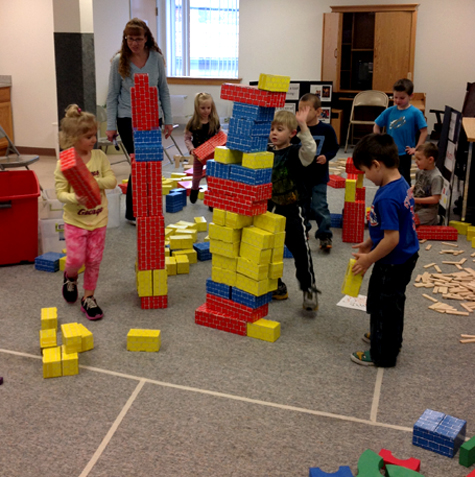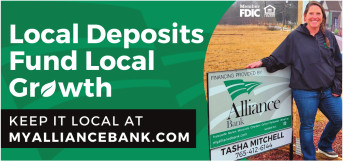 Program organizers cited research which indicates early block play provides aptitude and achievement differences by 7th grade and into high school. Learning basic science concepts is easier if the brain has made space for this idea.
Program organizers cited research which indicates early block play provides aptitude and achievement differences by 7th grade and into high school. Learning basic science concepts is easier if the brain has made space for this idea.
Through play, children learn to share, take turns, and negotiate. Block play teaches impulse control. This control predicts better school performance and less problem behaviors later. Young children who hear more words learn more words. Early vocabulary growth predicts later reading achievement in school. Dramatic (pretend) play predicts greater vocabulary growth in young children.
Adapting a program developed by the University of Wisconsin Extension, three sets of blocks are available throughout the state and shared by various counties.
The Pulaski County HHS Educator held a training for Head Start parents, and then hosted the Block Party at the Head Start facility. Thirty-six children and their parents and grandparents participated.
Organizers say they aren't sure who had more fun, the children or the adults building and playing with the blocks and each other. The children built houses, a bumble bee, rainbows - their imaginations were flowing.
The real target audience was the parents. Without exception, they rated the activity very high. Some comments included: Teaching more about the science behind blocks. Having fun with my child. Asking more questions about the children’s creations. It helps with motor skills and hands-on learning. Great family time playing together. Also this lets them expand their minds.
Parties will be scheduled at more sites in 2014.







